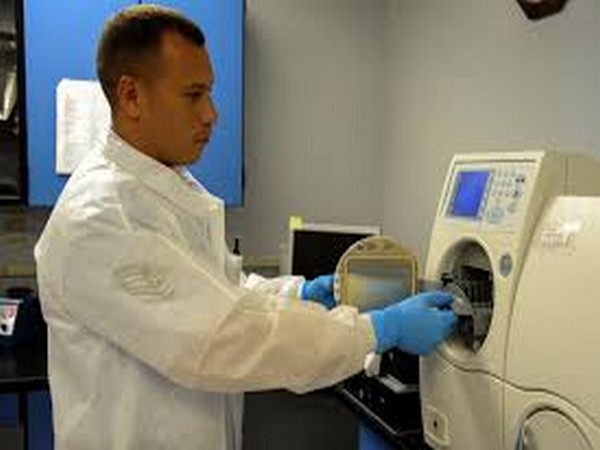Researchers discover world's first blood incubator
With the help of laser technology, researchers have discovered the world's first blood incubator, which will prevent blood transfusions and detect antibodies in pregnant women that may kill a fetus.

- Country:
- United States
With the help of laser technology, researchers have discovered the world's first blood incubator, which will prevent blood transfusions and detect antibodies in pregnant women that may kill a fetus. According to the study published in the journal -- Nature's Scientific Reports -- these findings can bring pre-transfusion testing out of the pathology lab to point-of-care, with blood incubation time slashed to just 40 seconds, as compared to the industry gold standard of five minutes.
This breakthrough has the potential to improve the pre-transfusion testing of millions of patients undergoing blood transfusions across the world, especially those having major surgery, going into labour or causalities of mass trauma and individual trauma. The detection of immunoglobulin G (IgG) antibodies requires incubation at 37°C, often for up to 15 minutes. But the current incubation technology relies on slow thermal procedures such as heating blocks and hot-water baths.
This delay adds to pathology costs and turnaround time, which substantially affects a patient's chance of survival. To address this problem, BioPRIA's blood diagnostics team developed a laser incubation model where a targeted illumination of a blood-antibody sample in a diagnostic gel card is converted into heat, via photothermal absorption.
Most importantly, no significant damage is detected to the cells or antibodies for laser incubations of up to 15 minutes. The study was led by Dr Clare Manderson from the Bioresource Processing Institute of Australia (BioPRIA), located within the Department of Chemical Engineering at Monash University, in conjunction with blood diagnostics manufacturer Haemokinesis.
"Laser incubation can be extremely valuable when time and accuracy are vital, especially in critical and emergency settings -- like mass trauma -- where pre-transfusion testing needs to be performed quickly in order to save lives," Dr Manderson said. "We show that red blood cells act as photothermal agents under near-infrared laser incubation, triggering rapid antigen-antibody binding with no significant damage to the cells or antibodies for up to 15 minutes."
This study demonstrates laser-incubated immunohaematological testing to be both faster and more sensitive than current best practice, with clearly positive results seen from incubations of just 40 seconds. (ANI)
(This story has not been edited by Devdiscourse staff and is auto-generated from a syndicated feed.)
- READ MORE ON:
- researchers
- fetus
- patient
- patients
- millions
- agents
- Monash University
ALSO READ
AIIMS Delhi Empowers Patients with Real-Time Diet Feedback System
Superheroes Spark Hope for Young Kosovo Cancer Patients
Political Turmoil in Bangladesh Hits Kolkata Hospitals: 90% Drop in Bangladeshi Patients
Tragic Incident at AIIMS-Bhubaneswar: Patient's Suicide Shocks Community
Telangana: Union Minister Reddy distributes fruits to patients on Atal Bihari's 100th birth anniversary









